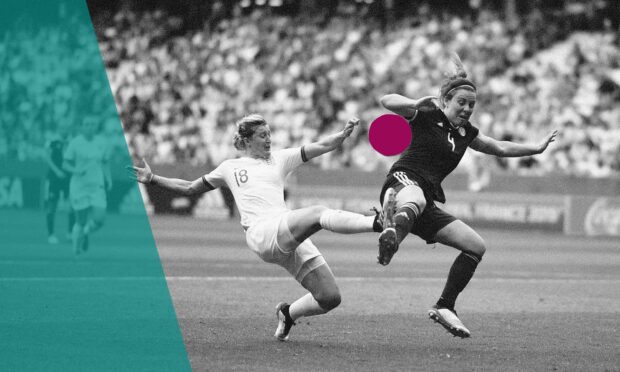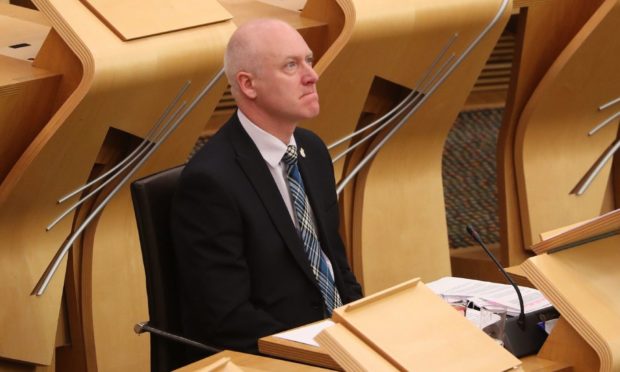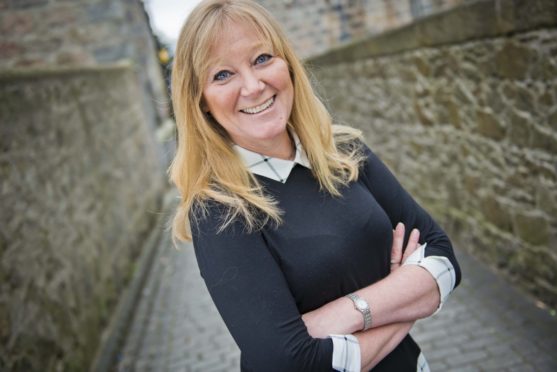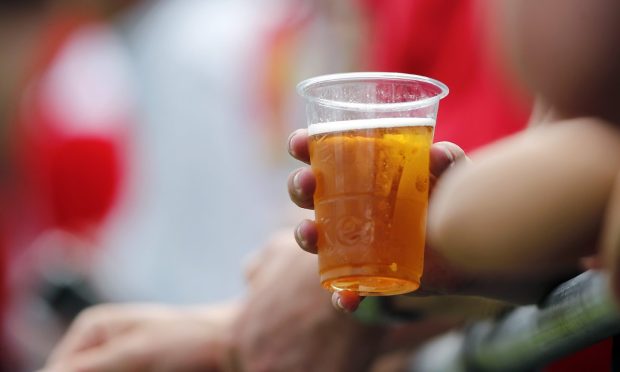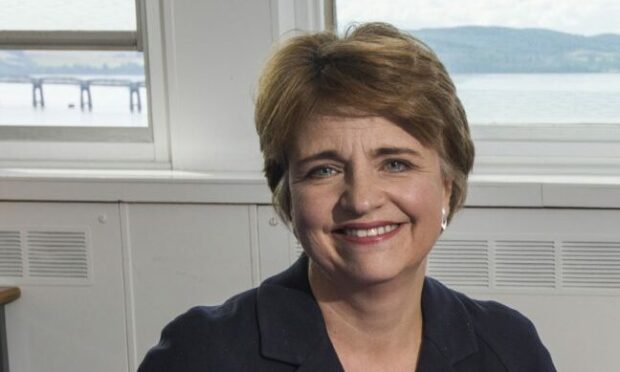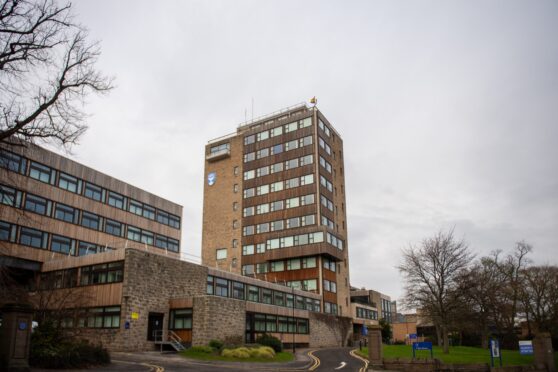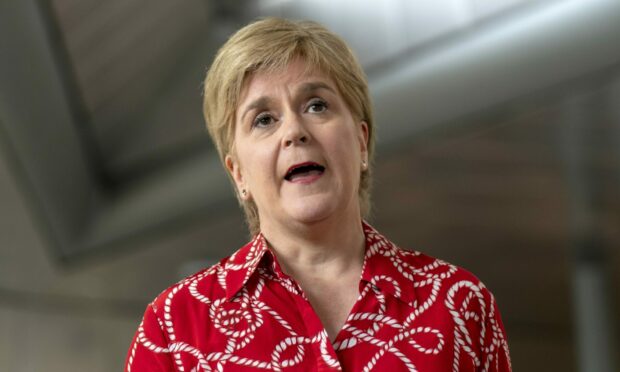A leading female football club director says sexism in the sport is “still too common” but claims there has “never been a more positive time for the women’s game in Scotland”.
The remarks follow a joint investigation by The Press and Journal and The Courier which has been hailed for “shining a light” on the levels of sexism in women’s football.
Our survey uncovered harassment blighting the women and girls game across the north and the north-east, Tayside, Fife, Perthshire and Angus.
MSPs debated the issue at Holyrood on Wednesday and praised the work of the journalists behind the investigation – Sophie Goodwin and Stephen Stewart.
More than 70% of female respondents reported having experienced sexism in the sport according to the 119 players, officials and fans surveyed.
Zoe Ogilvie, Aberdeen Football Club director praised the investigation for “shining a light” on an issue which is “still too common”.
But she also emphasised there has “never been a more positive time for the women’s game in Scotland”.
Introducing his debate, Dundee City West MSP Joe Fitzpatrick said “these are findings none of us should be willing to accept”.
He told MSPs that “men specifically” need to change their attitudes to female participation in football.
The SNP politician added more has to be done to ensure more women are in “senior roles” at football clubs.
Raith Rovers initial decision to sign David Goodwillie, who was branded a rapist by a civil court judge in 2017, was condemned by several members.
Emma Roddick, SNP MSP for Highlands and Islands, told members she is a season ticket holder at Inverness Caledonian Thistle.
But she said this was not the case when she was a young girl where she was “not welcome” to play at lunchtime and “chased away by boys”.
Maree Todd, Minister for Sport, said she was “greatly encouraged by progress as a nation” but was “under no illusions that a lot of work needs to be done”.
She pointed at work the Scottish Government is already undertaking such as the formation of a misogyny working group which recently published a “groundbreaking report”.
The minister added she was “absolutely determined that we will encourage more women and girls to participate in sport”.
‘Never been a more positive time’
Speaking ahead of the debate, Ms Ogilvie said: “The report found that a lack of profile and sexism were the main barriers to attracting women into football. The profile can be easily fixed and is already increasing significantly.
“But changing behaviours towards girls and women in previously male-dominated sports will, unfortunately, take much longer, and can only be achieved through education and bad behaviours being called out and addressed by those in authority.
“But it’s not all doom and gloom. With many premiership clubs now hosting women’s games in their main stadia, the SPFL taking governance of the women’s top-flight competitions and more exposure than ever before, there’s never been a more positive time for the women’s game in Scotland.
“And there’s one thing for certain, the women I know in the Scottish game have the strength, resilience, determination and passion to overcome the obstacles they face.
“They just need to know that they’ve got the support of the government, the governing bodies and the Clubs in calling out sexism and working, together, to eradicate it.”
Aileen Campbell, chief executive of Scottish Women’s Football, said women’s football in Scotland is on an “upward trajectory”.
But she acknowledged that “significant challenges remain in terms of attitudes towards women taking part in sport”.
The former government minister added: “That is why we welcome the work of the Press and Journal and the Courier to raise awareness about the reported levels of sexism and misogyny faced by women in football.
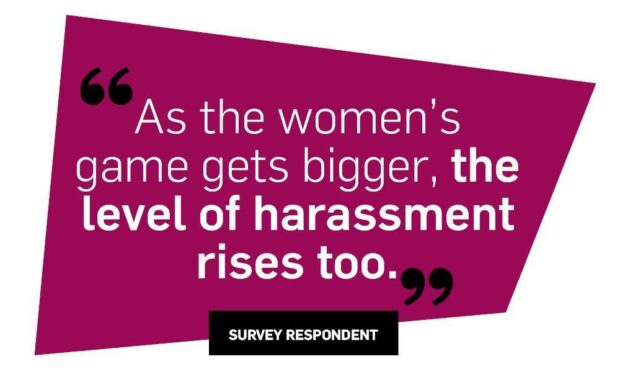
“And it is encouraging that MSPs in the Scottish Parliament will now debate this issue to help identify ways we can work together to tackle it.”
Women’s football is divided into six regions across the country. The north region covers Aberdeen, Aberdeenshire, Moray, Highland, Orkney, Shetland and the Western Isles.
The east region covers Angus, Dundee, Perth & Kinross and Fife.
The most recent figures from Scottish Women’s Football – up to February 1 2022 – show that 1,298 female players are registered in the north, with 1,417 in the east.
Read more from this series
- Rachel Corsie: You can think I’m the worst player in the world but don’t tag me in posts or say nasty remarks
- Amy Strath: We are playing our own game – it is women’s football. We deserve to be treated with respect
- Sophie Goodwin: I was too scared to call out abuse in women’s football before. But that’s what I’m doing now
- Zoe Ogilvie: Let’s celebrate the differences and opportunities women’s football offers
- ‘Great strides made but we must remain vigilant to combat sexism in football’
- Georgia Carter: Online abuse has to be taken seriously for women’s football to grow
- Elsie Cook: We have to speak out against sexists. We can’t let them win
- Donna Paterson: We were left to get changed in the stands… You’d never see that in the men’s game
